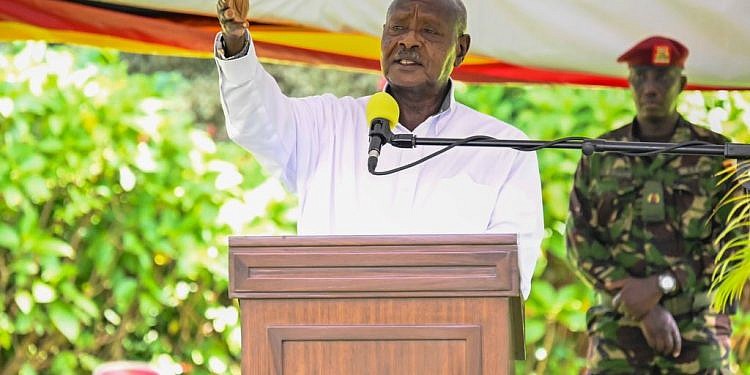President Yoweri Museveni has reignited the debate on denying bail to individuals charged with capital offences and those accused of corruption, arguing that granting bail in such cases is a “big mistake” if the case is ready for trial.
Speaking at the first annual coordination meeting between the Office of the Director of Public Prosecutions (DPP) and the Criminal Investigations Directorate (CID) in Kibuli, Museveni questioned the rationale behind allowing bail for suspects when their cases are ready to proceed in court.
“If the case is ready for trial, granting bail is a big mistake. I can understand if the case is not ready after six months, you might consider bail, but if it is ready, why not try and finish it, especially in cases involving murder, corruption, rape, or treason?” Museveni stated.
He emphasized that it is unfair to the victims when suspects of serious crimes, such as murder, rape, or corruption, are released on bail. The president stressed that while suspects have the right to apply for bail, granting bail should not be seen as an automatic right.
“The accused have rights, but the victims also have rights. You can’t say that the rights of the accused are the only rights protected by the Constitution,” Museveni argued. “Africans still believe in the law of Moses — an eye for an eye, a tooth for a tooth. If you want peace with Africans, we demand full accountability.”
Article 23(6) of the 1995 Constitution of Uganda grants anyone arrested for a criminal offence the right to apply for bail, allowing courts the discretion to grant it on reasonable conditions. The Constitution also mandates that suspects remanded in custody for offences triable by both the High Court and subordinate courts be released on bail if their trial does not commence within 120 days.
Museveni, however, maintained that while applying for bail is a right, granting it remains a matter of judicial discretion.
The president’s remarks are expected to stir further discussion on Uganda’s legal stance on bail, particularly for serious crimes and corruption cases, as the country continues to balance constitutional rights with public demands for justice.







































